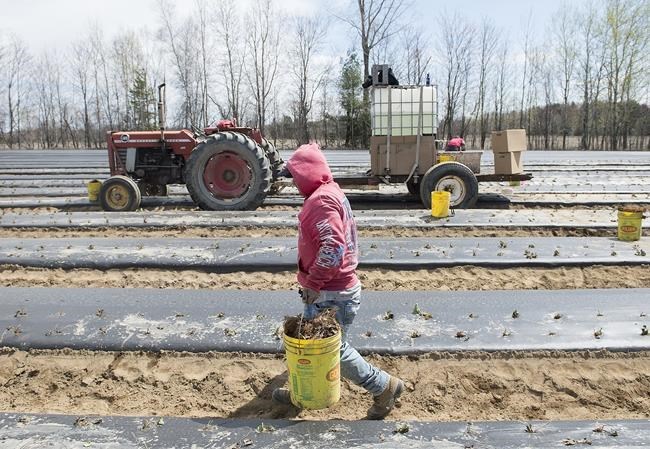MONTREAL — Up to 80 per cent of people who are injured at work in Montreal and require rehabilitation are immigrants, says a new study from a research institute for occupational health and safety.
Jessica Dubé, a researcher with the Robert-Sauvé institute, said the province's workplace health and safety board reports that the majority of its cases involve immigrants — compared to a decade ago when the majority involved Québécois workers.
"We spoke with employees from the workplace health and safety board, injured immigrant workers, rehabilitation counsellors, employers and doctors," Dubé said in an interview Tuesday.
"We wanted to understand the different issues in the process of occupational rehabilitation for immigrant workers."
She said the rise in injuries involving immigrants can be partly explained by the increase in Montreal's immigrant population and by the sectors that they choose to work in -- or are pushed to work in.
Many immigrants, Dubé said, face obstacles in the job market, such as not having their degrees and accreditations recognized by Quebec professional orders. These difficulties sometimes push immigrants to accept jobs for which they don't have proper skills or training, which she said increases the likelihood of injury.
The study shows that some industries that lead to many injuries — and that include a high percentage of immigrants — include agriculture, manufacturing and health and social services, which tend to involve long hours, gruelling work and manual labour.
"These jobs carry more risk of injury because they are very manual and repetitive," she said.
As well, immigrants may not know that they can report injuries and possibly be compensated, Dubé said.
"In certain cases, they will wait before declaring the injury, or they will not declare it at all, and in other instances, they will wait until the injury gets worse or becomes chronic before declaring the injury, which might explain to a certain degree why we find so many immigrant workers in rehabilitation," she said.
The researcher added that some workers will not declare their injuries for fear of reprisal and dismissal.
Dubé called the findings "worrisome" and said that one of the goals of the study is to raise awareness of the situation.
"We also hope it brings changes to policies related to occupational health and safety. And possibly new intervention strategies that will help doctors and employers facilitate the process for workers to return to work."
The study is ongoing, and the complete findings will only be presented in June.
This report by The Canadian Press was first published Dec. 20, 2022.
—
This story was produced with the financial assistance of the Meta and Canadian Press News Fellowship.
Marisela Amador, The Canadian Press



